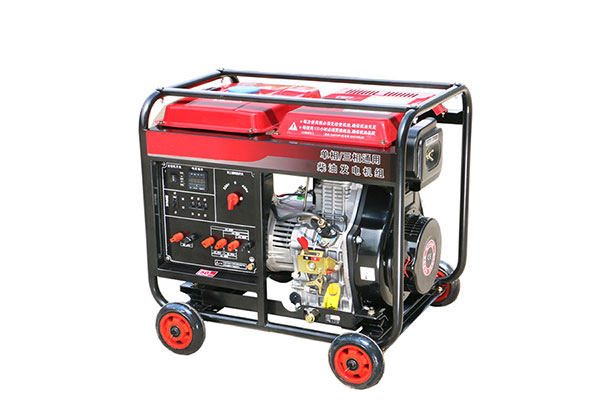How does a diesel generator work? What is its principle?
Nowadays, diesel generators are the preferred backup power or main power equipment for many enterprises. So, in the process of using diesel generators, have you ever thought about how modern diesel generators work and generate electricity? Next, RoadskyMaintenance will give you an overview of the components and process of generating electricity from diesel generators.
Understanding the Basics of Diesel Generators
Diesel generators are widely used due to their robustness, durability, and high energy output. Unlike gasoline generators, which use spark plugs for ignition, diesel generators utilize compression ignition to convert fuel into electrical energy.

The principle behind a diesel generator’s operation can be summarized in the following steps:
1. Fuel Injection:
The process begins with the injection of diesel fuel into the combustion chamber of the generator’s internal combustion engine.
2. Compression:
Within the combustion chamber, the fuel-air mixture is compressed by a piston, increasing the temperature and pressure.
3. Combustion:
As the compressed air reaches its peak pressure, the fuel is injected into the hot air, igniting spontaneously due to the high temperature. This combustion releases a significant amount of energy.
4. Power Generation:
The generated energy is harnessed to drive the generator’s rotor, which is surrounded by a stator. The movement of the rotor within the magnetic field produced by the stator induces an electrical current in the stator windings, producing electricity.
Key Components of Diesel Generators
To better understand the working principle of diesel generators, it is essential to explore the key components that enable the conversion of fuel into electricity. The primary components include:
- Engine: The heart of a diesel generator is its internal combustion engine, specifically designed to handle the high compression and combustion process unique to diesel fuel. The engine converts the chemical energy stored in diesel fuel into mechanical energy.
- Fuel System: The fuel system comprises a fuel tank, fuel pump, fuel filters, and injectors. The fuel tank stores the diesel fuel, while the fuel pump delivers the fuel to the injectors under high pressure. The injectors, controlled by the engine’s electronic control unit (ECU), ensure precise fuel delivery into the combustion chamber.
- Cooling System: The cooling system prevents the engine from overheating during operation. It typically includes a radiator, coolant, water pump, and thermostat. The coolant absorbs heat from the engine, which is then dissipated through the radiator.
- Exhaust System: The exhaust system is responsible for removing the combustion gases generated during the power generation process. It includes the exhaust manifold, muffler, and exhaust pipes. The muffler reduces the noise produced during operation.
- Alternator: The alternator, also known as the generator head, converts the mechanical energy produced by the engine into electrical energy. It consists of a rotor and a stator, with the rotor rotating within the magnetic field produced by the stator, inducing an electrical current.
Advantages and Applications of Diesel Generators:
Diesel generators offer several advantages, making them a popular choice for various applications. Some of the advantages include:
- Reliability: Diesel generators are known for their robustness, durability, and ability to provide consistent power output. They are highly reliable during extended power outages and can handle heavy loads.
- Fuel Efficiency: Diesel generators are more fuel-efficient compared to gasoline generators. Diesel fuel has a higher energy density, allowing diesel generators to generate more electricity per unit of fuel consumed.
- Longevity: Diesel engines have a longer lifespan compared to gasoline engines due to their sturdier construction and lower operating temperatures. With proper maintenance, diesel generators can last for many years.
Diesel generators find applications in various sectors, including residential, commercial, and industrial settings. They provide backup power for homes, prevent business interruptions in commercial establishments, and power heavy machinery and critical infrastructure in industrial environments.
Conclusion:
Diesel generators play a vital role in ensuring uninterrupted power supply in various sectors. By understanding the working principle and components of diesel generators, we can appreciate their reliability, fuel efficiency, and versatility. Whether for residential, commercial, or industrial applications, diesel generators continue to provide a dependable source of backup power, helping to mitigate the impact of power outages and maintain productivity.

